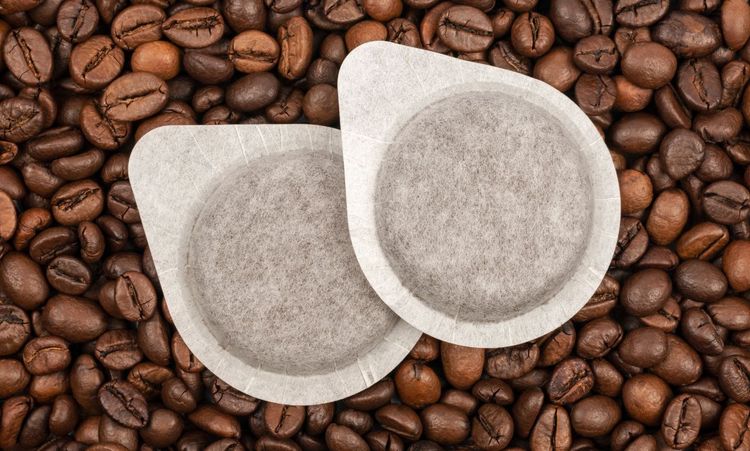Many people reach for 100% fruit juice thinking they're making a smart health choice. After all, it comes from real fruit and contains no artificial additives. Marketing campaigns have convinced us that these beverages offer the same benefits as whole fruits. This assumption, however, couldn't be further from the truth. The reality is quite different from what most consumers believe. Even pure fruit juice lacks many essential components found in whole fruits. Processing removes vital nutrients while concentrating problematic elements. Health experts increasingly warn against treating fruit juice as a healthy beverage option. Understanding why 100% fruit juice falls short requires examining its nutritional profile carefully. The differences between juice and whole fruit extend beyond simple processing methods. These distinctions have real consequences for your health and wellbeing.
High Sugar Content
Concentrated Natural Sugars Create Problems
The juicing process concentrates natural sugars into a much smaller volume than whole fruit. One medium orange contains about 12 grams of sugar naturally distributed throughout its structure. A single cup of orange juice, however, requires three to four oranges to produce. This means you're consuming 24-36 grams of sugar in one serving. Your body processes these concentrated sugars differently than those found in whole fruit. The rapid absorption leads to quick spikes in blood sugar levels. These sudden increases can strain your metabolic system over time. Type 2 diabetes risk increases when blood sugar regularly fluctuates dramatically. Natural doesn't automatically mean healthy when it comes to sugar concentration. Fruit juice often contains more sugar per serving than many soft drinks. A 12-ounce glass of apple juice has approximately 39 grams of sugar. Compare this to a can of cola, which contains about 35 grams.
Blood Sugar Impact Matters More Than Source
The World Health Organization recommends limiting free sugars to less than 10% of daily calories. Free sugars include those naturally present in fruit juices, honey, and syrups. A single large glass of fruit juice can easily exceed this recommended limit. Blood sugar spikes from fruit juice consumption can trigger insulin resistance over time. This condition makes it harder for cells to respond properly to insulin signals. Eventually, this can lead to metabolic syndrome and increased heart disease risk. Professional dietitians often place fruit juice in the same category as other sugary beverages. The American Heart Association suggests limiting fruit juice consumption just like any other sweetened drink. Children are particularly vulnerable to these sugar-related health impacts.
Low Fiber Content
Processing Removes Essential Fiber
Manufacturing processes strip away most dietary fiber from fruit during juice production. Whole fruits contain both soluble and insoluble fiber that benefit digestive health significantly. Soluble fiber helps regulate blood sugar and cholesterol levels effectively. Insoluble fiber promotes healthy bowel movements and prevents constipation. A medium apple contains about 4 grams of fiber, while apple juice contains virtually none. This fiber removal changes how your body processes the fruit's natural sugars. Without fiber to slow absorption, sugars enter your bloodstream much more rapidly. Fiber also contributes to satiety, helping you feel full after eating fruit. Juice lacks this important quality, making overconsumption much easier than with whole fruits. You might easily drink the equivalent of four apples in juice form. Eating four whole apples would be challenging and naturally self-limiting.
Gut Health Suffers Without Adequate Fiber
Your digestive system relies on fiber to maintain healthy bacterial populations in your gut. These beneficial bacteria play crucial roles in immune function, mood regulation, and nutrient absorption. Fruit juice provides none of these fiber-dependent benefits. Low fiber intake correlates with increased risks of colon cancer, heart disease, and digestive disorders. The Harvard Health Publishing organization emphasizes fiber's importance for long-term health outcomes. Most Americans already consume insufficient fiber, making juice a poor dietary choice. Fiber from whole foods creates a protective effect against various chronic diseases. This protection disappears when you choose processed juice over whole fruit alternatives. Your gut microbiome suffers when deprived of the fiber it needs to thrive.
Potential for Weight Gain
Liquid Calories Don't Trigger Satiety Properly
Research shows that liquid calories don't activate the same satiety mechanisms as solid foods. Your brain doesn't register juice consumption the same way it recognizes whole fruit intake. This disconnect can lead to consuming excess calories without feeling appropriately full. A study published in nutritional journals found that people who drank fruit juice gained more weight over time. Participants who ate whole fruits maintained healthier weights more successfully. The difference in satiety response appears to be the primary factor. Fruit juice calories add up quickly without providing lasting satisfaction. A large glass of juice might contain 200-300 calories but leave you hungry shortly afterward. Those same calories from whole fruit would keep you satisfied much longer.
Portion Control Becomes Difficult
Standard serving sizes for fruit juice are much smaller than what most people actually consume. The U.S. Department of Agriculture recommends just 4-6 ounces of fruit juice daily. Many restaurants and home glasses hold 12-16 ounces or more. Children are particularly susceptible to excessive fruit juice consumption leading to weight gain. The American Academy of Pediatrics now recommends limiting juice intake for all age groups. Sippy cups filled with juice can contribute to both weight gain and tooth decay. Calorie intake from beverages often goes unnoticed in people's daily dietary assessments. Many individuals carefully monitor food calories while ignoring liquid calorie sources entirely. This oversight can sabotage weight management efforts significantly.
Dental Health Concerns
Acid Erosion Damages Tooth Enamel
Fruit juices are naturally acidic, with pH levels that can damage tooth enamel over time. Citrus juices like orange and grapefruit are particularly problematic for oral health. The citric acid in these beverages can erode protective enamel with repeated exposure. Enamel erosion is irreversible and can lead to increased sensitivity, cavities, and cosmetic problems. Unlike tooth decay from bacteria, acid erosion directly dissolves the mineral structure of teeth. This process happens gradually but causes permanent damage to your smile. Sipping juice slowly throughout the day maximizes the time your teeth are exposed to acid. Dental professionals recommend consuming acidic beverages quickly and rinsing with water afterward. Even better, drinking through a straw can minimize contact with teeth surfaces.
Sugar Feeds Harmful Oral Bacteria
The high sugar content in fruit juice provides fuel for harmful bacteria in your mouth. These bacteria produce acids as they metabolize sugars, creating additional threats to dental health. The combination of natural fruit acids and bacterial acid production doubles the damage potential. Frequent juice consumption creates an environment where harmful bacteria can thrive and multiply rapidly. This bacterial overgrowth increases the risk of cavities, gum disease, and bad breath. Children who regularly drink fruit juice show higher rates of dental problems. Timing matters when it comes to juice consumption and dental health impacts. Drinking juice before bedtime is particularly harmful since saliva production decreases during sleep. Saliva normally helps neutralize acids and wash away sugar residues from teeth surfaces.
Not a Good Source of Nutrients
Processing Destroys Vital Compounds
The manufacturing process used to create shelf-stable fruit juice destroys many beneficial compounds found in fresh fruit. Heat pasteurization eliminates enzymes, reduces vitamin content, and breaks down delicate antioxidants. What remains is primarily sugar, water, and minimal nutritional value. Vitamin C, often touted as a benefit of fruit juice, is frequently added back artificially after processing. The natural vitamin C in fresh fruit comes packaged with complementary compounds that enhance absorption. Isolated vitamin C in processed juice lacks these beneficial cofactors. Many fruit juices contain added ascorbic acid to replace nutrients lost during manufacturing. This synthetic vitamin C doesn't provide the same health benefits as naturally occurring vitamins in whole fruits. The food processing industry markets these additions as nutritional improvements.
Whole Fruits Provide Superior Nutrition
Fresh fruits contain thousands of beneficial compounds that work together synergistically for optimal health benefits. These include flavonoids, polyphenols, and various antioxidants that protect against cellular damage. Juicing processes eliminate or significantly reduce these protective compounds. The phytochemicals in whole fruits provide anti-inflammatory, anti-cancer, and heart-protective effects. These benefits disappear when fruit is processed into juice form. Eating a variety of colorful whole fruits provides far superior nutritional value than any juice product. Leafy greens, vegetables, and whole fruits offer complete nutritional packages that processed juices cannot match. The synergistic effects of consuming foods in their natural state provide maximum health benefits. Isolated nutrients in juice form simply cannot replicate these complex interactions.
Moderation is Key
Better Alternatives Exist
If you enjoy fruit flavors, consider diluting small amounts of 100% juice with sparkling water. This approach reduces sugar concentration while maintaining taste satisfaction. Infusing water with fresh fruit slices provides flavor without excessive sugar or calories. Vegetable juices often provide better nutritional profiles than fruit-based options. Tomato juice, for example, contains less sugar and more beneficial compounds like lycopene. However, even vegetable juices should be consumed in moderation due to sodium content. My neighbor switched from daily orange juice to eating two whole oranges for breakfast. She noticed improved energy levels and better appetite control throughout the morning. This simple change helped her lose fifteen pounds over six months without other dietary modifications.
Smart Consumption Strategies
When you do choose to drink fruit juice, treat it as an occasional indulgence rather than a health beverage. Limit portions to 4-6 ounces and consume with meals to minimize blood sugar spikes. Never use juice as a thirst quencher or regular beverage replacement. Reading nutrition labels carefully helps you make informed decisions about juice consumption. Look for products with no added sugars, but remember that natural fruit sugars still impact your health. Compare sugar content across different brands and choose lower-sugar options when possible. Consider the glycemic index when selecting occasional juice treats. Apple and grape juices have higher glycemic indices than citrus options. Lower glycemic choices cause less dramatic blood sugar fluctuations and may be slightly better choices.
Conclusion
The marketing surrounding 100% fruit juice has created widespread misconceptions about its health value. Despite containing no artificial additives, these beverages concentrate problematic sugars while eliminating beneficial fiber and nutrients. The processing required to create shelf-stable juice fundamentally changes the nutritional profile of the original fruit. Whole fruits provide superior nutrition, better blood sugar control, improved satiety, and enhanced dental health outcomes. The fiber, antioxidants, and beneficial compounds in fresh fruit work together to promote optimal health. These synergistic effects cannot be replicated in processed juice products. Making the switch from fruit juice to whole fruits represents a simple but powerful change for better health. Your blood sugar, weight management, dental health, and overall nutrition will all benefit from this substitution. Remember that when it comes to fruit consumption, nature's original packaging is almost always the best choice.




